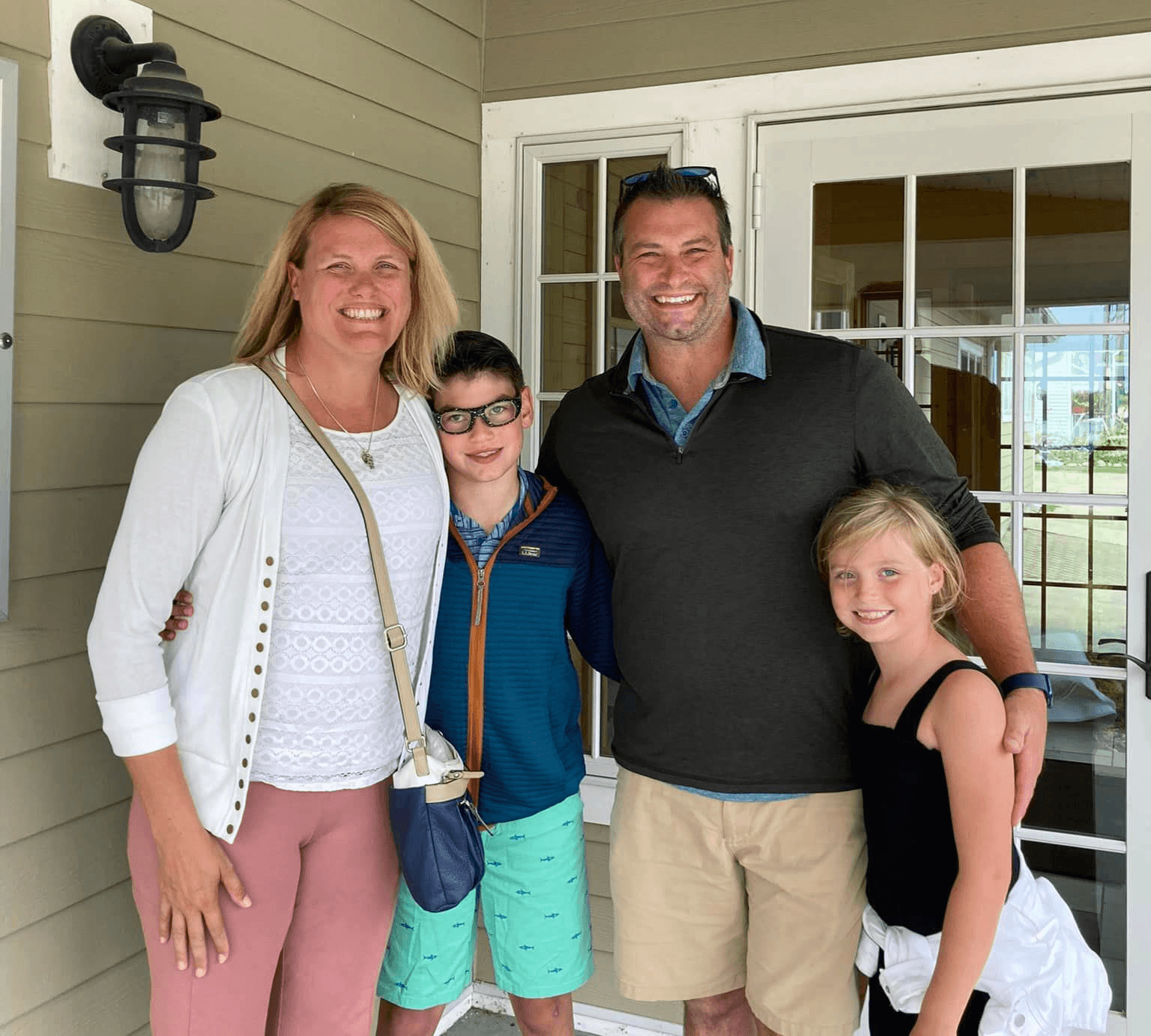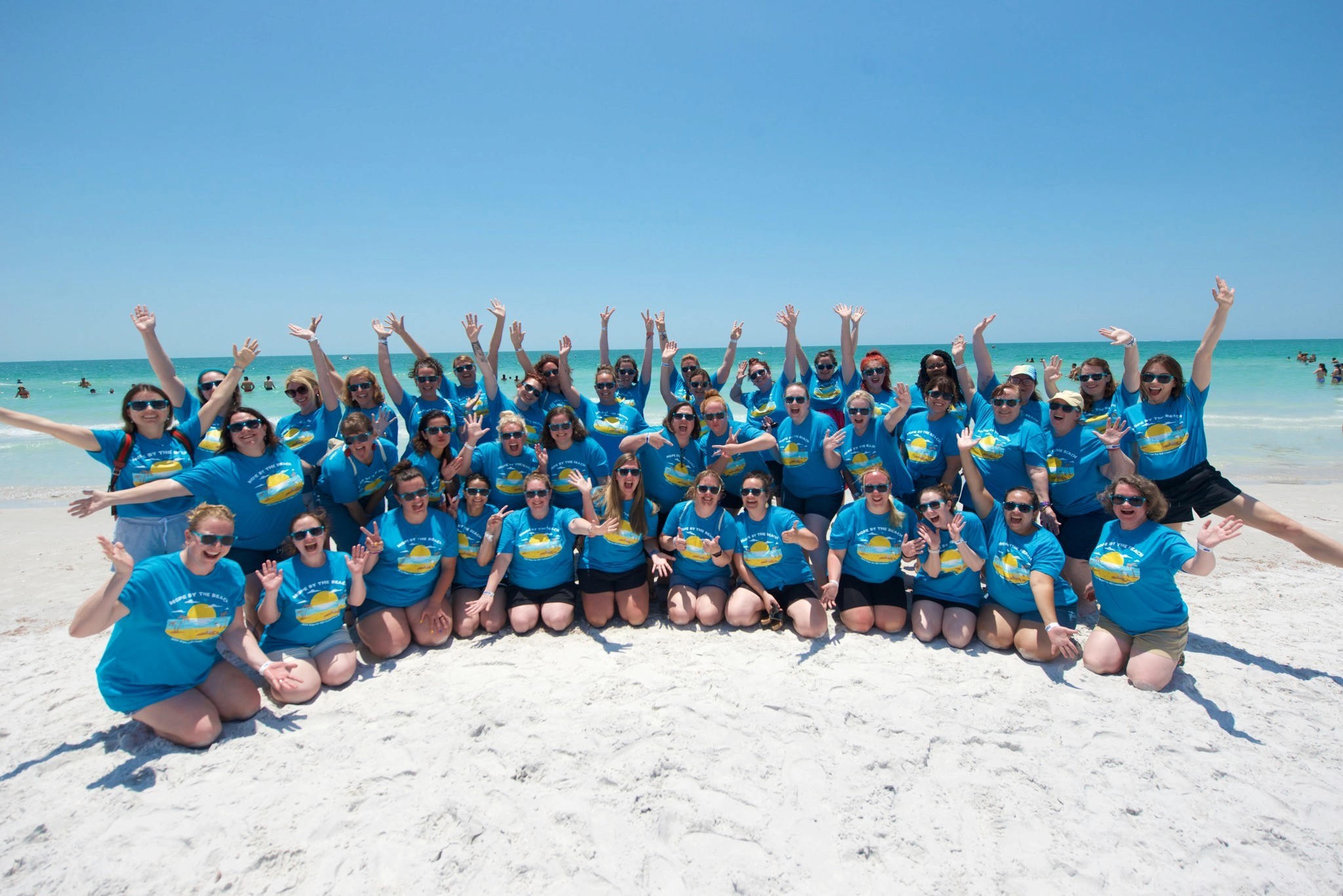Voice of change: A conversation with Betsy Pilon
October 17, 2024
by Betsy Pilon
Parents Perspective
We are delighted to speak with a leading voice in the patient advocacy community, Betsy Pilon, about her work, her advice to families affected by HIE, and her thoughts on the future of AI and other emerging technologies in healthcare.
Betsy is the Executive Director of Hope for HIE, a global patient advocacy and support nonprofit dedicated to improving the quality of life for children and families affected by neonatal and pediatric-acquired Hypoxic Ischemic Encephalopathy (HIE) through awareness, advocacy, education, research and support. A driving and positive force for change in the HIE community, Betsy has transformed the Foundation, expanding its reach from a 200-family Facebook group to a global community of over 10,000 families. Her work includes building strategic partnerships, advocating for resources and research support, and contributing to numerous healthcare committees while also authoring impactful publications and presenting at international conferences. Notably, HIE is a common cause of cerebral palsy, epilepsy, learning and attention difficulties, and hearing and vision impairments, making her advocacy vital to many communities.
What inspired you to become an advocate for families affected by HIE, and how has your journey with Hope for HIE shaped your perspective on neonatal care?
My son Max was born in April 2012 with HIE. At that time, there was no organised advocacy and minimal support for families facing HIE. The absence of representation in the NICU was profoundly disheartening. The lack of educational materials for a fairly common diagnosis was unacceptable to me—especially with my background in healthcare marketing and communications, where I had developed patient education materials for the very health system I delivered into.
This need, I found out, was not localised to where I lived. When I discovered Hope for HIE, a Facebook support group with around 200 families from across the globe, all sharing similar stories, it became clear to me that this was the common experience and needed to change.
I also recognise the immense privilege I carry—I was fortunate to have access to healthcare and insights many others have not. I had professional skills in building rapport with various healthcare professionals in my career, and it was still very hard. I knew if it was hard for me, it had to be impossible for people who had more systemic barriers against them by social determinants of health and who didn't have the extra time to dedicate to seeing how we could change this.
My journey with Hope for HIE has given me a more well-rounded view of systemic barriers and gaps, unmet needs, and a solution-based mindset to tackle things that I firmly believe can change. We have seen much of this change over the last decade, particularly with organisations like the Newborn Brain Society, which brings together multiple specialities focused on the newborn brain and incorporates patient advocacy. In the case of HIE, neonatology often focuses on a relatively short timeline due to the acute, intensive nature of care—where "long-term" might mean two or three years. However, for our community, long-term means the entire lifespan.
What are the biggest challenges families face after an HIE diagnosis, and how can healthcare providers better support them during this critical time?
As advanced as science has become, we still don't have a crystal ball... and even if we did, waiting for a delay or issue to present sometimes years down the road is a load to carry for families. Families often face mental health impacts from their time in the NICU, fear and anxiety of the unknown, and isolation because most do not know someone whose baby has been diagnosed with HIE.
Whole systemic family support is ideal—babies need healthy parents to help them reach their unique potential. HIE doesn't just impact the baby and parents; siblings and extended family also need support. Social support for paid leave, access to early intervention therapies, and accommodations for any disabilities a child with HIE may face are critical needs for families. Providers can play a key role in advocating for more of these resources, facilitating connections and helping families navigate the journey, recognising that HIE is a lifelong diagnosis requiring ongoing support.

What advice would you give to parents who are just starting their journey after an HIE diagnosis, and what resources should they seek out first?
I am deeply rooted in the power of community. Every family should have access to a supportive community that truly understands and takes their concerns seriously. For families just starting out, I recommend connecting with support networks like Hope for HIE, seeking out a trauma-trained therapist for yourself and your partner, and remembering that your baby is, above all, still a child. Their diagnosis doesn’t define them as just a medical case, nor should it define your entire life.
Dreams of parenthood might look different and need different accommodations to make them happen, but there is so much living to do. Hope is found in every story, and looks different for everyone—it is not narrowly defined by a particular outcome.
With the rapid advancement of AI and other technologies in healthcare, what are your thoughts on how these innovations could be integrated into NICU practices to support clinicians and families?
AI presents some excellent opportunities to aid in the identification of trends, which can lead to better care and understanding of a very complex diagnosis. This can lead to better, more concrete communication with families and opportunities for quality improvement in care. Even prior to the NICU setting, AI has the potential to be a powerful tool in assessing the health of the mother and fetus during gestation and potentially decreasing the incidence and impact of HIE through advancing interventions and therapeutics.
Looking back on your journey with Hope for HIE, what is one key piece of knowledge or advice you wish you had known when you first started advocating for families affected by HIE?
HIE is incredibly complex, and change is never as fast as we'd like it to be. We humans really wish things were as simple as 1+1=2, and often, it is difficult to accept the unknown and figure out a way to sit in the discomfort of it while living your life.
You aren't a failure as a parent that HIE happened, and you aren't failing your child if you don't make therapy their whole life—they are kids, even those with complex disabilities—and you deserve to prioritise your family's well-being and memory making. Burning out early is a hard lesson to learn, so don’t be afraid to pause, rest, and begin again.
